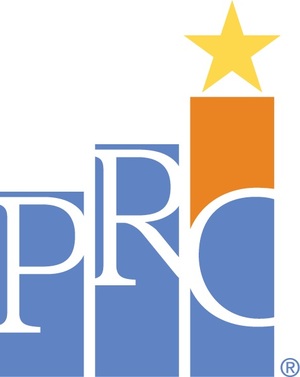Hospitals Unintentionally Devalue Efforts to Improve Patient Experience
Recent PRC study published by The Beryl Institute indicates that hospitals may not be getting feedback from a representative sample of patients to showcase caregiver efforts accurately
OMAHA, Neb., April 25, 2019 /PRNewswire/ -- Nationally over the past several years hospitals have seen a decline in response rates and Hospital Consumer Assessment of Healthcare Providers and System (HCAHPS) scores, which may be inadvertently derailing efforts to improve patient experience. PRC, a leading healthcare market research and consulting company supporting over 2,500 healthcare organizations, is excited to announce today that their research regarding the impact of response rates on HCAHPS dimension scores will be published by The Beryl Institute in the Patient Experience Journal. This groundbreaking study found a positive relationship between response rate and HCAHPS scores nationwide, emphasizing the need for higher response rates.
"In the past two years, CMS [Centers for Medicare and Medicaid Services] has repeatedly voiced concern with these low response rates and stressed the need for improvement," reported Dr. Joe Inguanzo, President and CEO of PRC. "That said, many healthcare organizations are making large investments towards improving their patient experience yet are not experiencing an accurate ROI."
The peer-reviewed study examines the historical trends of the national response rates and survey methodologies and provides three hospital case studies. These case studies demonstrate the positive correlation between an increase in response rate and improved HCAHPS scores across all dimensions. The paper, "The Impact of Response Rate on Hospital Consumer Assessment of Healthcare Providers and System (HCAHPS) Dimension Scores," was originally published in Volume 6, Issue 1-2019 of the Patient Experience Journal and can be downloaded at https://pxjournal.org/journal/vol6/iss1/13/
Financial benefits aside, hospitals with increased response rates also receive valuable feedback from a more representative cross-section of patients, thus creating a more reliable and representative sample of the total hospital patient population. These more comprehensive results can be used to track improvement initiatives. On the other hand, hospitals with low response rates are less likely to see their improvement initiatives reflected in their scores, which can lead to a negative impact on their bottom line and employee morale.
"Through our research, we see that regardless of the situation, this positive correlation emphasizes the importance of achieving a higher response rate to most accurately understand a hospital's true performance. Simply put, scores should reflect the true efforts of caregivers and leaders, which too often is not the case," stated Dr. Inguanzo.
About PRC
Since its inception in 1980, PRC has helped more than 2,500 healthcare organization across all 50 states achieve their objectives by collecting and analyzing timely, accurate, and reliable feedback from patients, employees, physicians, and the community at large. PRC also provides coaching to healthcare executives and front line staff. PRC is at the forefront of innovation in the healthcare market research industry, currently offering clients real-time survey solutions, a dynamic Value-Based Purchasing (VBP) calculator, and the PRC Engagement Link℠, a proprietary tool that gives clients a unique, holistic analysis of the relationship between employee engagement and patient experience. For more information, visit https://prccustomresearch.com
Media Contact:
Jessica Tobey
Speaks Marketing Group
[email protected]
SOURCE PRC

Related Links
http://www.prccustomresearch.com
WANT YOUR COMPANY'S NEWS FEATURED ON PRNEWSWIRE.COM?
Newsrooms &
Influencers
Digital Media
Outlets
Journalists
Opted In



Share this article